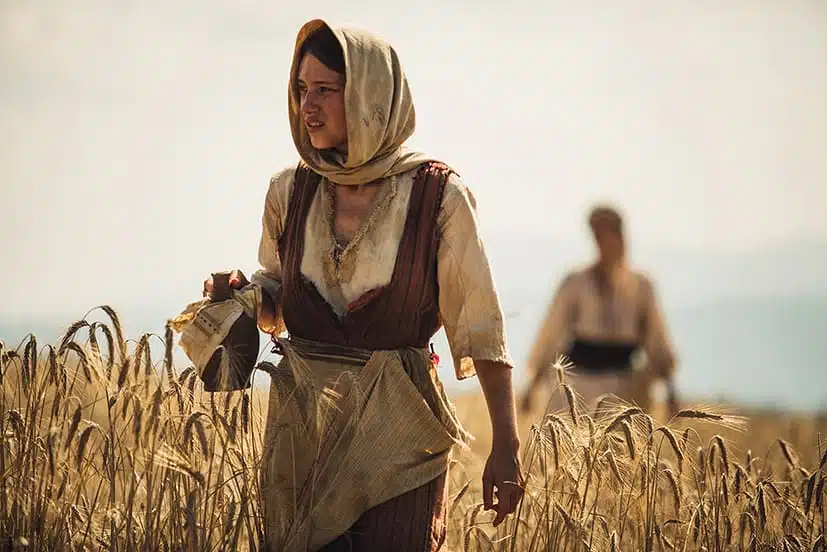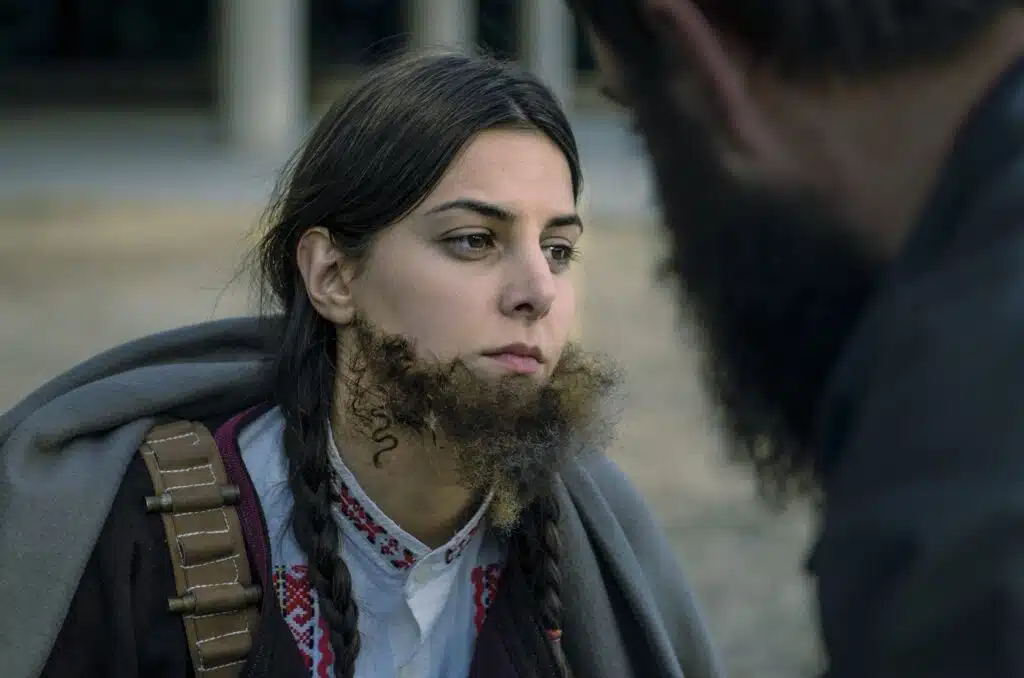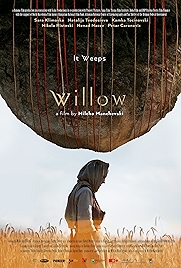Three stories, two periods, one issue – children – in Willow, a spiky North Macedonian drama which first shows us “the old ways”, then reminds us that they exert a pull even on modern-day lives.
The first story gives it to us neat. We’re in pre-modern, possibly medieval times, where childless Donka and her husband have been trying and failing to conceive for five years. They visit a crone and tell her of their predicament. They have tried all the old wives’ methods, they say, and now they have come to a proper old wife as a last ditch. She, cackling and stirring a pot like something from the Grimm brothers, tells them she can help them. You have been cursed, she says. I can lift it and you will have lots of children, a gaggle. In return you must give me your firstborn.
They depart. Have sex under a willow tree. Give birth to a child. Some time later one dark and stormy night there’s a knock, knock, knocking on the door. It is the crone, who has come for “her” baby…
Director Milcho Manchevski shoots it all elementally. The air is bright and sharp, fields of wheat are golden and endless. Houses are stone and solid. Water is cool and clean. When it rains, it pours. When it’s night, it’s pitch. That willow tree, it’s massive and splendid… and how it weeps. The cinematography (by Tamás Dobos) is crystalline, spectacularly so.
We cut to the present-day, to Skopje, where a man and woman meet in unusual circumstances. Branko is a taxi driver who knocks down a man in the street and in the ensuing kerfuffle gets to know Rodna, who lives in an apartment overlooking the scene of the accident. Long story short, they end up together, married but incapable of having children. The fertility clinic beckons, he with the plastic container and the porn magazines, she driven half mad by the hormones, the pair of them massively in debt.
And then the focus slides sideways, to Rodna’s sister, Katerina, whose adopted son Kire is refusing to speak, refusing to play, pissing his pants.
All three plots are more fascinating than those bare-bones outlines suggest, thanks to Manchevski’s eye for detail and determination to make everyone involved a fleshed-out character, not merely a type. Even the crone gets her shading, as does the man Branko knocks down in his car.
He’s blessed by three charismatic actresses in the key roles. Sara Klimoska as the medieval Donka (strangely, she’d turn up three years later in another crone/firstborn movie, You Won’t Be Alone), Natalija Teodosieva as the dark-eyed Rodna and Kamka Tocinovski as her sister, Katerina.
The men are good too, particularly Nenad Nacev as taxi-driving Branko and Petar Mircevski, who does a lot with very little as Stavre, the unfortunate flattened by Branko’s taxi. Special mention to Petar Caranovikj, as the young, mute Kire. All that said, this isn’t their show.
Story one and story two follow the same structure – a problem, a solution offered which in turn brings its own problem. Things get a little fraught, overwrought, even. Mercifully the third story switches things about a bit, allowing for an upbeat finish laying some of all that to rest.
Anxiety is the driver – at not having children, then at having them, at them not turning out the way you wanted them to.
It’s a powerful film that manages to work in broad strokes and fine touches at the same time. I’d not heard of the director, Manchevski, before, for my sins, but see he became something of an instant somebody in European cinema when he released his debut film, Before the Rain. It was hailed as “one of the greatest debut feature films in the history of cinema,” by one critic. That’s a hell of a claim. The New York Times put it on their Best 1,000 Movies Ever Made list. Which is another. Further investigation obviously required.
Willow – Watch it/buy it at Amazon
I am an Amazon affiliate
© Steve Morrissey 2023


